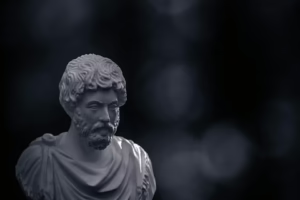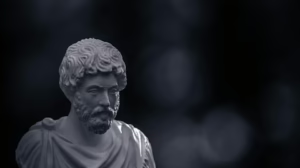Unlocking Wisdom: Must-Read Philosophy Books for Every Thinker
Philosophy, the love of wisdom, has been a guiding light in the darkness of human existence for millennia. It challenges our beliefs, questions our morals, and expands our understanding of reality. Engaging with philosophy enhances critical thinking, encourages open-mindedness, and allows us to explore fundamental questions about life, existence, and the universe. This article aims to explore must-read philosophy books for every thinker, providing insights and guidance for those seeking wisdom in a complex world.
1. “Meditations” by Marcus Aurelius
Overview
“Meditations,” written by Roman Emperor Marcus Aurelius, is a collection of personal writings that reflect his Stoic philosophy. It explores themes of virtue, self-control, and the transient nature of life. Aurelius provides a profound examination of how one should conduct oneself in the face of hardship and adversity, emphasizing the importance of inner peace.
Key Themes
Aurelius emphasizes the significance of accepting what one cannot change and finding strength in oneself. His reflections encourage readers to maintain a rational mindset and cultivate personal integrity, making it a cornerstone of Stoic literature.
Why Read It?
In an age filled with distractions and external pressures, “Meditations” serves as a practical guide to achieving tranquility. It is particularly relevant for those looking to develop resilience and a balanced perspective in the face of life’s trials.
2. “Nicomachean Ethics” by Aristotle
Overview
Aristotle’s “Nicomachean Ethics” lays the foundation for much of Western ethical thought. The work philosophically explores the nature of happiness and virtue. Aristotle argues that to lead a fulfilling life, individuals must cultivate virtues, which are habits that lead to moral excellence.
Key Themes
Central to Aristotle’s ethics is the concept of the “Golden Mean,” which suggests that virtue lies between excess and deficiency. For instance, courage is the mean between recklessness and cowardice. This framework encourages readers to strive for balance in their moral lives.
Why Read It?
In contemporary society, where moral ambiguity is prevalent, Aristotle’s insights offer a structured approach to ethics. Reading “Nicomachean Ethics” not only informs one’s understanding of morality but also inspires practical virtue cultivation.
3. “The Republic” by Plato
Overview
In “The Republic,” Plato explores justice, the ideal state, and the nature of the soul through dialogues featuring Socrates. This philosophical treatise delves into the concepts of governance, education, and the ideal society, emphasizing the importance of philosopher-kings.
Key Themes
Plato introduces the idea of the “Forms,” particularly the Form of the Good, which represents the ultimate truth. His allegory of the cave, where prisoners mistakenly believe shadows on a wall are reality, highlights the journey from ignorance to enlightenment.
Why Read It?
“The Republic” prompts readers to examine their beliefs about justice and governance. It challenges thinkers to reflect on their roles within society and the nature of reality itself, making it an essential read for anyone interested in political philosophy.
4. “Being and Time” by Martin Heidegger
Overview
Martin Heidegger’s “Being and Time” is a seminal work in existential philosophy and phenomenology. It explores the nature of being and existence, pressing readers to confront their own experiences and the meaning of their lives.
Key Themes
Heidegger introduces the concept of “Dasein,” or being-there, emphasizing that existence precedes essence. He argues that understanding our being requires an acknowledgment of our temporality and the inevitability of death.
Why Read It?
Heidegger’s exploration of existence resonates deeply with those grappling with the meaning of life. “Being and Time” encourages readers to engage with their existence authentically, making it a profound philosophical journey.
5. “Critique of Pure Reason” by Immanuel Kant
Overview
Immanuel Kant’s “Critique of Pure Reason” investigates the relationship between human experience and knowledge. It marks a significant turning point in philosophy, laying the groundwork for modern epistemology and metaphysics.
Key Themes
Kant distinguishes between phenomena (the world as we experience it) and noumena (the world as it exists independently of our perceptions). He argues that while we cannot know noumena directly, our understanding of phenomena allows us to engage meaningfully with the world.
Why Read It?
By grasping Kant’s complex ideas, readers can better understand the limitations of human cognition and the nature of knowledge itself. This book is essential for anyone interested in the foundations of modern philosophy.
6. “The Second Sex” by Simone de Beauvoir
Overview
Simone de Beauvoir’s “The Second Sex” is a foundational text in feminist philosophy. It examines the historical and social constructs surrounding womanhood and challenges the subjugation of women throughout history.
Key Themes
De Beauvoir famously asserts, “One is not born, but rather becomes, a woman,” highlighting the idea that gender roles are socially constructed. She explores the impact of patriarchy on women’s identity and agency, advocating for liberation and equality.
Why Read It?
“The Second Sex” remains highly relevant in discussions of gender and feminism. It encourages readers to critically examine societal norms and advocates for a more equitable understanding of identity.
7. “Thus Spoke Zarathustra” by Friedrich Nietzsche
Overview
Friedrich Nietzsche’s “Thus Spoke Zarathustra” is a philosophical novel that presents his ideas on individualism, morality, and the concept of the Übermensch (Overman). Through the character of Zarathustra, Nietzsche explores the profound implications of self-overcoming.
Key Themes
Nietzsche challenges traditional moral values and advocates for the creation of one’s own values. He critiques the dogmas of religion and promotes the idea of living authentically, embracing life’s challenges as opportunities for personal growth.
Why Read It?
Engaging with Nietzsche’s provocative ideas stimulates deep reflection on morality, purpose, and the nature of existence. His work is essential for thinkers who seek to forge their own paths and redefine their beliefs.
8. “The Tao Te Ching” by Laozi
Overview
“The Tao Te Ching” is a classic text in Taoist philosophy attributed to Laozi. It emphasizes harmony, balance, and the importance of living in accordance with the Tao, or the way of nature.
Key Themes
Laozi advocates for simplicity and humility, urging individuals to embrace the flow of life rather than resist it. The text often employs paradox and metaphor, reflecting the complexity of existence and the interconnectedness of all things.
Why Read It?
The wisdom in “Tao Te Ching” encourages readers to cultivate inner peace and a deeper appreciation for the natural world. Its teachings resonate with those seeking a holistic approach to life and existence.
9. “A Theory of Justice” by John Rawls
Overview
John Rawls’ “A Theory of Justice” is a pivotal work in political philosophy that seeks to establish a framework for a just society. Rawls introduces the concept of the “original position,” a hypothetical situation in which individuals design a society from behind a “veil of ignorance.”
Key Themes
Rawls argues for two principles of justice: the liberty principle and the difference principle, which emphasize individual freedom and the fair distribution of wealth. His approach encourages readers to reconsider societal structures and justice.
Why Read It?
Rawls’ ideas are critical for understanding contemporary debates about justice and fairness. Engaging with his work empowers readers to think critically about their ethical responsibilities within society.
10. “The Structure of Scientific Revolutions” by Thomas Kuhn
Overview
In “The Structure of Scientific Revolutions,” Thomas Kuhn challenges the traditional view of scientific progress as a linear accumulation of knowledge. Instead, he argues that science progresses through paradigms and revolutionary shifts.
Key Themes
Kuhn introduces the idea of “paradigm shifts,” where scientific communities undergo transformative changes in understanding. This framework has significant implications for how we perceive knowledge, progress, and truth.
Why Read It?
Reading Kuhn’s work encourages critical reflection on the nature of scientific inquiry and the evolution of knowledge. It empowers thinkers to question established norms and consider the complexities of intellectual advancement.
Conclusion
Philosophy invites us to explore the depths of human thought, engaging with the ideas that have shaped our understanding of the world. The texts listed above are essential readings for anyone seeking wisdom, prompting reflection and a deeper appreciation for the complexities of existence. Each book offers unique insights, serving as a guide for navigating the challenges of life and broadening our philosophical horizons.
Engaging with these works opens doors to profound contemplation, encouraging personal growth and a more nuanced understanding of the human condition. Whether you are a seasoned philosopher or a curious thinker, these must-read books will enrich your life and inspire your journey toward wisdom.
References
- Aurelius, Marcus. Meditations.
- Aristotle. Nicomachean Ethics.
- Plato. The Republic.
- Heidegger, Martin. Being and Time.
- Kant, Immanuel. Critique of Pure Reason.
- de Beauvoir, Simone. The Second Sex.
- Nietzsche, Friedrich. Thus Spoke Zarathustra.
- Laozi. Tao Te Ching.
- Rawls, John. A Theory of Justice.
- Kuhn, Thomas. The Structure of Scientific Revolutions.
This piece offers a broad overview of foundational philosophy texts, vital for thinkers traversing their intellectual paths. Happy reading!


























Add Comment